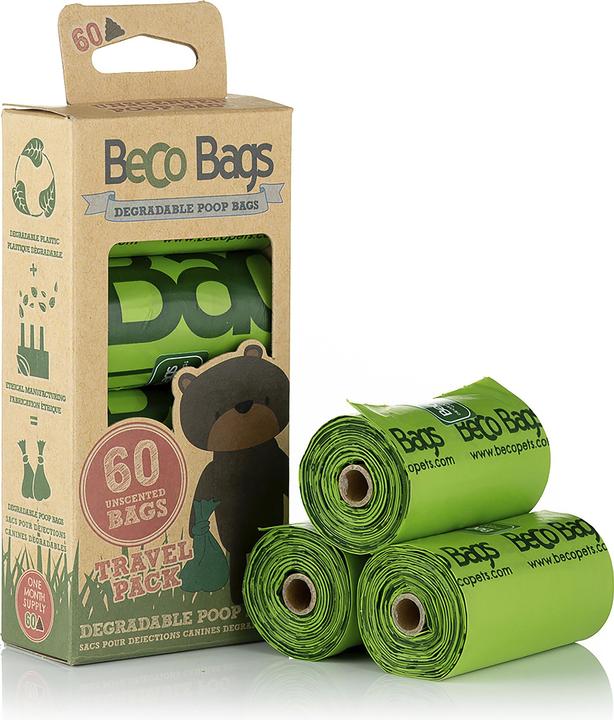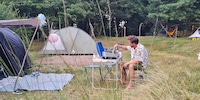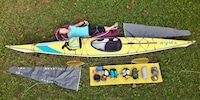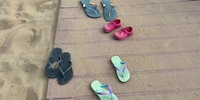

What to do when nature calls outdoors
In the great outdoors, you often forgo the comforts of civilisation. This can prove quite tricky – like when you’ve got to go to the toilet. Here are some tips on what you can do when nature calls.
Admittedly, I was a bit surprised to receive an e-mail in response to my article about sleeping on the water that read, «Where on earth did you relieve yourself?» This question was followed by a series of accusations, including one about how «all you folks jumping on the camping bandwagon are out and about, leaving your poop everywhere, sometimes
even adorned with tissue paper...»
The e-mail as it’s written is clearly inappropriate. But the topic is important and worth addressing. After all, the natural and elementary functions of our body don’t just stop when hiking, biking or sleeping outdoors. Carelessly doing your business outside not only creates a biological landmine and smelly nuisance, but can also spread pathogens.
What to do when nature calls?
The tips that follow were written with the following in mind:
**– preventing water pollution
**– preventing the possible transmission of diseases to other people and animals
**– encouraging rapid composting
**– providing options to do your business in such a way that no one else finds it or, worse still, steps in it
**– preventing environmental pollution
Go for the classic if you can
Of course, if you can, it’s always best to go to a proper bathroom or porta-potty. I’m also a fan of the composting toilets that you’ll find in Switzerland along hiking trails and sometimes at festivals. «Go before you go» is a solid rule of thumb, in any case. When it comes to answering the question, «Where can I go?» apps like «WC-Karte» (toilet map) are handy – it reliably shows me porta-potties and other public toilets in my area.
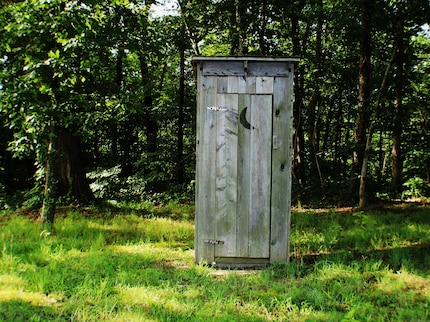
Source: Amy Reed / Unsplash
But when push comes to shove, you have no choice but to let nature take its course outdoors. Fun (?) fact: it takes about a year for human excrement to decompose. That’s why outdoor organisations like Leave No Trace recommend taking at least 70 steps away from any hiking trails before relieving yourself. Personally, that’s not enough for me for privacy reasons. Scientists have also questioned this distance. At my last camp on an uninhabited island, the rule was that anyone who had to «go» had to go at least five minutes away from camp. And then what?
Find a good spot for your business
It’s best to find a piece of dark forest floor, as humus-rich soils promote decomposition. Of course, do also make sure there are no stinging nettles or blackberry thorns caressing your backside while you relieve yourself. If you’re unsure if your balance is up to the task, look for a spot under a tree that you can hold on to when you squat.
Out of sight, out of mind
Now comes the deep stuff – it’s time to get digging. The hole you use as an outdoor toilet should be around 10 centimetres in diameter and 15 to 20 centimetres deep. Make sure to destroy as little vegetation as possible. If the ground is soft enough, you can dig the hole using a flat stone or a piece of wood.
Experienced campers will usually carry a small shovel, or trowel. The aluminium trowel from Sea To Summit is a popular choice – I use it, too. It weighs only 100 grammes and can be made smaller. It is a little rickety, but you’re only supposed to use it in soft ground anyway.

What to do with the toilet paper?
The Sea To Summit shovel has a little compartment in the handle for carrying toilet paper, but it’s not very useful. It jams and is difficult to open. But toilet paper is a discussion in and of itself. Many campers have been taught to burn the toilet paper and throw the ashes into the hole alongside their business. But because of the often increased risk of forest fires, this is no longer recommended. Instead, you can take the used paper with you in a biodegradable poop bag, the kind you’d use for dog poop. The same applies if all you have at hand are tissues.
Leaves from trees and other plants are only suitable as a toilet paper substitute to a limited extent. I’d be especially careful in other countries, where some plants (think poison ivy) may look harmless, but can trigger severe itching and rashes. Bonus tip: the lower you squat, the less wiping you’ll have to do, at least with normal digestion.
Of course, it’s more environmentally friendly not to use any paper or plastic to clean your bottom. An option for this is the Happypo Easy Bidet, but using it requires some practice. I’d try it on your home toilet before taking it into the mountains. Editor Natalie tested a similar product some time ago.
After you’ve dropped your deuce and cleaned yourself, cover the hole back up. Make sure the shovel doesn’t come into contact with your poop. Alternatively, you can use a piece of wood or stone to cover it up. What now? Clean your hands thoroughly with hand sanitiser!
For here or to go?
As natural areas become more crowded, some organisations, especially in the USA, recommend you pick up after yourself. This is because the more people relieve themselves outdoors, the higher the concentration of bacteria, protozoa, parasites and viruses.
In winter and in the mountains above the tree line, it makes sense to take your own poop back with you, as the ground is often too hard to bury it. In the USA, you can get so-called WAG Bags designed especially for number twos with a powder that turns human metabolic products hard and reduces odours.
Of course, you can also make such a bag yourself by filling dog poop bags with a small amount of cat litter. When you finish your business, put this bag into a second bag for safety and throw it out in the nearest trash can.
If you’re looking for more tips on the subject, I recommend this humorously written and informative book with funny anecdotes about the history of going to the bathroom.
Pay attention to your number ones, too
Now that we’ve got the big guns out of the way, it’s time to turn to the yellow side of life. Again, be sure to stay at least 70 paces away from waterways and trails. Human urine contains hormones, drug residues, and in some cases antibiotic-resistant bacteria that cause harm in water. For this reason, don’t pee in small streams or mountain lakes. The further away from them you pee, the more the urine can be filtered through the soil layer. Avoid peeing on the vegetation in the mountains, as some animals are attracted to the salt content of urine and in their zeal end up uprooting the plants. It’s better to aim for a stone.
To be on the safe side, you can also take the urine back with you. There are special bags for men and women that turn the pee into a solid gel that can then be disposed of in the trash. This may sound like an exaggeration, and I’ve never done it myself, but a study in the USA found that in a popular national park, the concentration of reactive nitrogen from human urine was very high – and biodiversity can suffer as a result. How could they be sure it wasn’t animals peeing all over the place? Due to caffeine residues in the samples. After all, as the scientists noted, groundhogs don’t drink coffee.

Ladybag Pocket WC for women
1000 ml


Header image: Siri Schubert
Research diver, outdoor guide and SUP instructor – I love being in, on and around water. Lakes, rivers and the ocean are my playgrounds. For a change of perspective, I look at the world from above while trail running or flying drones.
Practical solutions for everyday problems with technology, household hacks and much more.
Show all